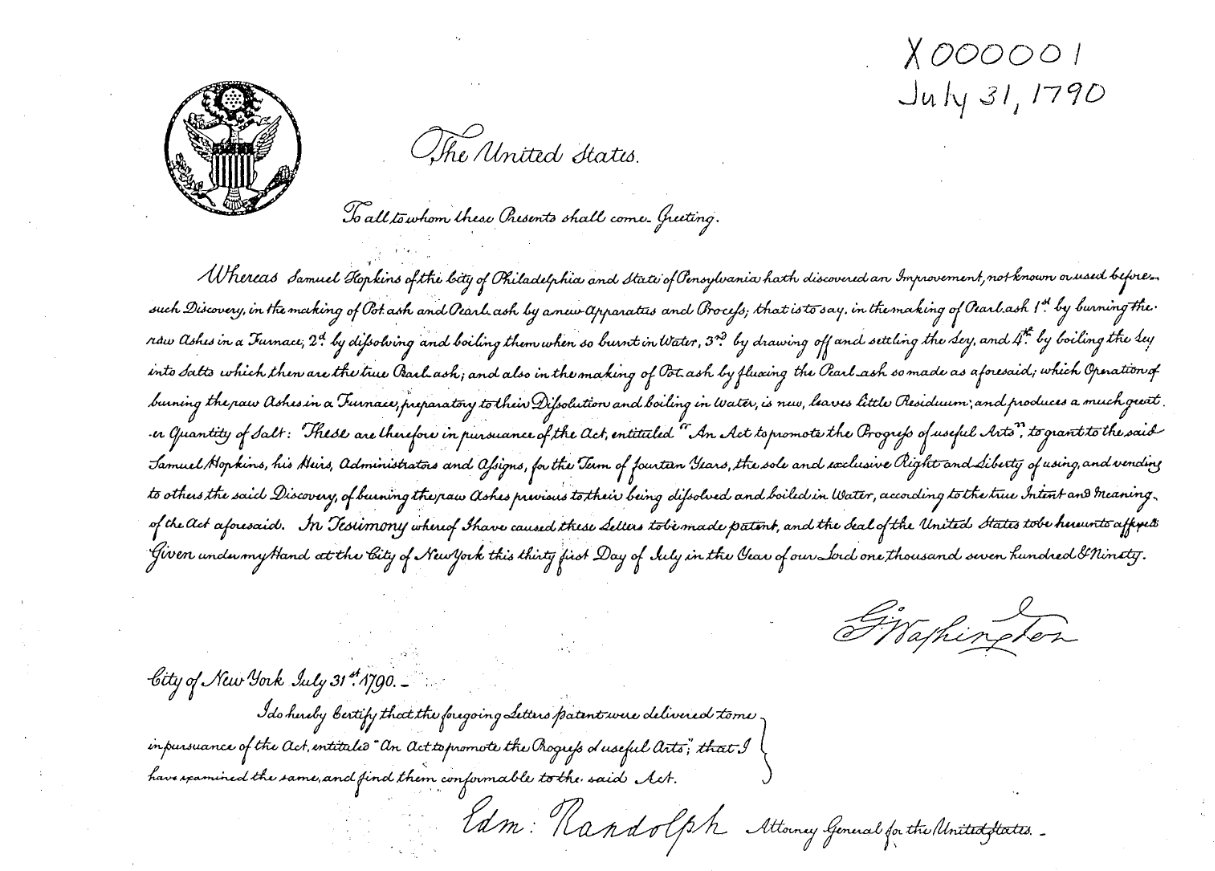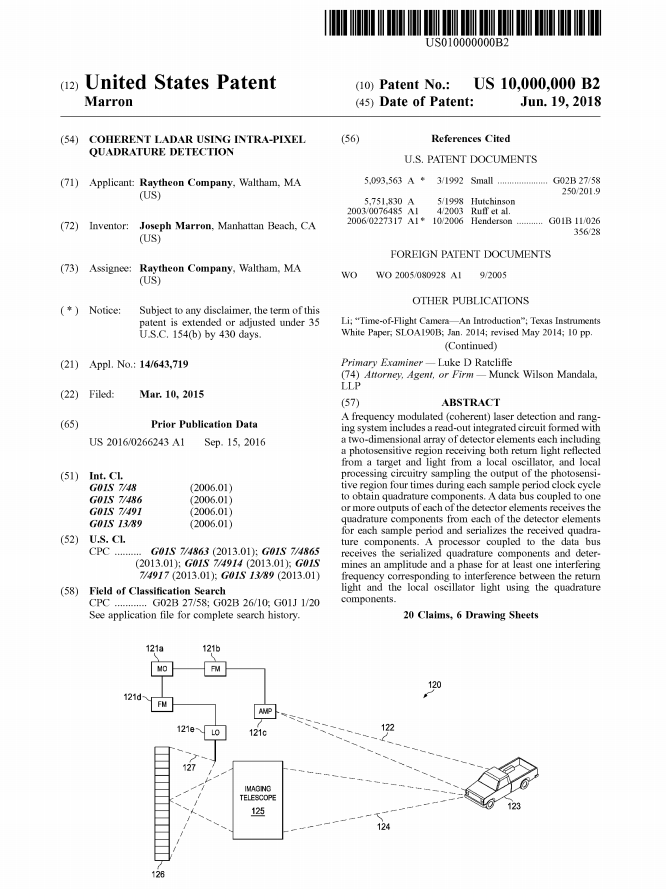The awarding of monopoly rights to inventors via patents and copyright is enshrined in the US Constitution, which states that Congress shall have power “To promote the progress of science and useful arts, by securing for limited times to authors and inventors the exclusive right to their respective writings and discoveries”.
The first US patent granted was to Samuel Hopkins of Philadelphia on 31 July 1790, who had developed a method of making the fertiliser ingredient, potash. The patent, signed by then-President George Washington, was examined by the first Patent Board, which composed of Secretary of State Thomas Jefferson, Secretary of War Henry Knox and Attorney General Edmund Randolph.

Fast forward 228 years to 19 June 2018, and the US Patent and Trademark Office (USPTO) has now issued the 10 millionth granted US patent. The patent, entitled “Coherent Ladar Using Intra-Pixel Quadrature Detection” was issued to the Raytheon Company of Massachusetts.

A far cry from its humble origins, the USPTO now employs over 8000 patent examiners and receives around 300,000 patent applications each year. Over recent years, the USPTO has managed to reduce its backlog of unexamined patent applications to around 500,000.
Whilst the issuing of patent no. 10,000,000 represents a significant milestone in the history of patents, it also raises a sobering reality for patent applicants - with 10,000,000 granted US patents (let alone published applications that didn’t mature into granted patents and patent applications filed in other countries) how can an inventor ever be sure that their invention is new and patentable?
Knowing what technology is currently used in the field of an invention is a good start, but it is always advisable to conduct thorough patent searches before filing a patent application. While no search can ever be completely comprehensive, conducting a patent search prior to filing at least minimises the risk that a patent application for an invention will fail for lack of novelty.